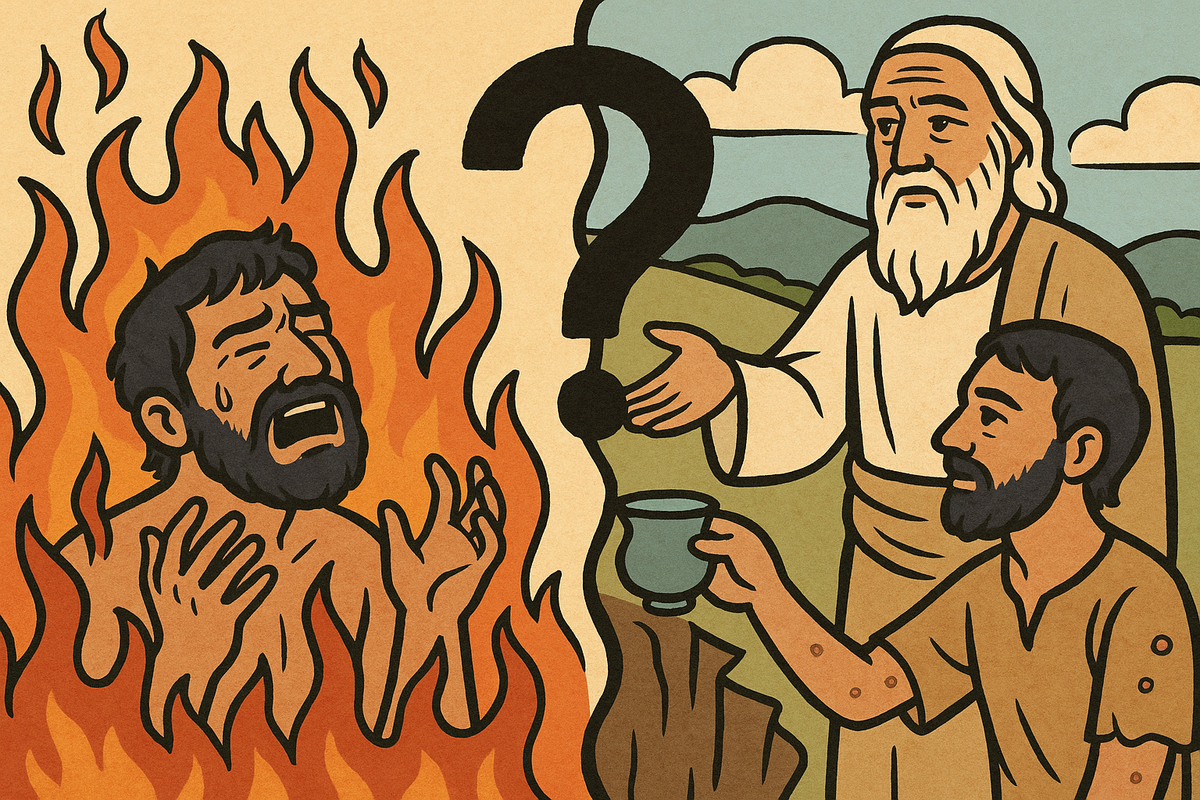Is the Judgment at Death Final?

Some point to Hebrews 9:27 to say 'yes'.
This post explores how Hebrews 9:27 is often interpreted as proof of immediate final judgment after death—and provides counterpoints, theological interpretations, and responses to popular commentators.
Let's dive in:
Hebrews 9:27 (ESV) with full context
For Christ has entered, not into holy places made with hands, which are copies of the true things, but into heaven itself, now to appear in the presence of God on our behalf. Nor was it to offer himself repeatedly, as the high priest enters the holy places every year with blood not his own, for then he would have had to suffer repeatedly since the foundation of the world. But as it is, he has appeared once for all at the end of the ages to put away sin by the sacrifice of himself. And just as it is appointed for man to die once, and after that comes judgment, so Christ, having been offered once to bear the sins of many, will appear a second time, not to deal with sin but to save those who are eagerly waiting for him.
(Hebrews 9:24–28, ESV)
Their Interpretation
Because judgment immediately follows death, there's no opportunity for a soul to turn to Jesus after death.
Biblical Pushback
Telescoping Technique
The author of Hebrews uses "telescoping," placing events side by side that aren’t necessarily immediate. Jesus demonstrates this in Luke 4:18–21, where he quotes Isaiah 61:2 but deliberately omits the phrase about the "day of vengeance"—a portion that remains unfulfilled even 2,000 years later. Thus, events described sequentially don’t always occur immediately.
Word Meaning
The Greek word for "after" doesn’t inherently mean "immediately after" unless explicitly stated:
- Matthew 24:29—explicitly "immediately after" (qualified)
- Matthew 26:32—no clear immediacy, as Jesus meets the disciples in Galilee at an unspecified later time (Matthew 28:16).
These linguistic and literary observations set the stage for several theological interpretations.
Interpretations of Hebrews 9:27
My Take
- The author uses a familiar Jewish belief: people die once and then face judgment (Daniel 12:2)
- This emphasizes the completeness of Christ’s single sacrifice.
- While reminding readers about their own judgment, the main point is Christ’s unique sacrifice and his promised return.
- Human experience (death and judgment) helps clarify Christ’s role.
- Christ’s sacrifice shifts believers’ focus from fear of judgment to the hope of salvation.
- Doesn’t address the question of post-death salvation.
Mike Winger
Mike Winger similarly concludes that Hebrews 9:27 doesn’t address post-death salvation possibilities, pointing instead to Luke 16:26 (the rich man and Lazarus).
Bruce Barton
"Each person lives on earth and then dies only once. After that, says the writer, comes judgment. All people will stand before God. Those who follow Christ have hope. Christians know that just as death and judgment are certain, so is their hope (9:28). All people die physically, but Christ died only once as a sacrifice to take away the sins of many people so that we would not have to die spiritually. Christ’s sacrifice was the turning point in history. The word once indicates the completeness and finality of Jesus’ sacrifice." (Life Application New Testament Commentary)
Responses to Arguments for Immediate Finality of Judgment
Spurgeon/Guzik
"A man dies once, and after that everything is fixed and settled, and he answers for his doings at the judgment. One life, one death—then everything is weighed, and the result declared: ‘after this the judgment.’ So Christ comes, and dies once; and after this, for him also the result of what he has done, namely, the salvation of those who look for him. He dies once, and then reaps the fixed result, according to the analogy of the human race, of which he became a member and representative."
(Spurgeon, cited in David Guzik's Commentary on Hebrews)
My Response
The main point is Christ’s singular sacrifice, not the immediacy of judgment timing.
Sproul
"Death is decisive for destiny. The Bible does not teach that after death there is another possibility of salvation for the lost (Luke 16:26; Heb. 9:27). After death, both the godly and the ungodly reap what they sowed in this world (Gal. 6:7, 8)."
(The Reformation Study Bible, ed. R.C. Sproul)
My Response
The Rich man and Lazarus parable encompassing Luke 16:26 predates Christ’s sacrifice. Couldn’t Jesus be the bridge over that uncrossable gulf (1 Peter 3:19)? Galatians 6:7–8 emphasizes consequence but doesn’t negate Christ's ability to redeem posthumously.
Lenski
"No one needs to wait until the last day to know God’s verdict; he receives it at the instant of death. Death also at once places his soul into either heaven or hell; the verdict is executed at once. To think of anything else erases the correspondence with Christ’s death, for he does not wait until the last day to learn God’s judgment regarding his sacrifice. There is no Totenreich where the souls of the dead lie inert, in a shadowy existence until the last day; there is no probation after death although some would insert it here."
(R. C. H. Lenski, The Interpretation of the Epistle to the Hebrews and of the Epistle of James)
My Response
Christ was in the grave three days; immediate judgment isn’t required for analogy. Jesus is uniquely the "first fruits" (1 Corinthians 15:20–23).
Poole
"But after this the judgment: in order, after souls by death are separated from their bodies, they come to judgment: and thus every particular one is handed over by death to the bar of God, the great Judge, and so is despatched by his sentence to its particular state and place with its respective people, Rom. 14:12. At the great and general assize, the day of judgment, shall the general and universal one take place, Acts 17:31, when all sinners in their entire persons, bodies and souls united, shall be adjudged to their final, unalterable, and eternal state, Rom. 14:10; 2 Cor. 5:10; Jude 6; Rev. 20:11–15."
(Matthew Poole, Annotations upon the Holy Bible)
My Response
Sorting after death occurs (e.g., Luke 23:43, the criminal in paradise), but no Scripture explicitly finalizes this sorting for those who don’t believe—certainly the last judgment is final.
A Final Consideration
For we must all appear before the judgment seat of Christ, so that each one may receive what is due for what he has done in the body, whether good or evil.
(2 Co 5:10, ESV)
Judgment for all (both Christians and non-Christians) will be based on what someone does before death. Luke 16:23 does indicate that immediate torment awaits those who die and haven’t yet believed on Jesus. Yet even this verse doesn’t rule out the possibility of Jesus rescuing a soul from the fires of Hades before the final judgment—if that soul puts its faith in Him (Jude 23—directed to us… would Jesus put something in our heart which isn’t already in his?).
While Hebrews 9:27 is often cited to argue for immediate final judgment, a deeper look suggests the timing of judgment may not be as fixed as assumed. The emphasis in the passage is on the once-for-all sacrifice of Christ and the hope of his return.




